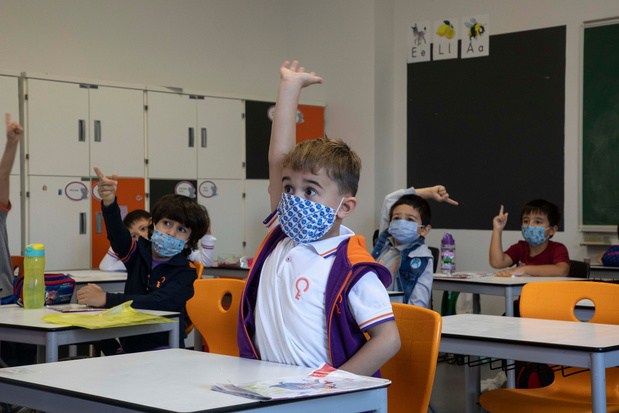Belgian political party Mouvement Réformateur (Reformist Movement) has tabled a resolution to make school education mandatory from three years old, Belgian newspaper La Libre Belgique reports.
“We often look at school failure and dropping out when it has already happened. We have to work to avoid these problems. Hence the importance of setting up the most complete education possible,” said party leader Georges-Louis Gouchez.
The party is calling to make school compulsory from the first year of kindergarten. MR hopes that the debate on education will be held sometime before the end of the year.
Educate earlier for greater equality
This is not the first time that this proposal has been made at the federal level. While policy relating to education is left to regional governments, whether it is mandatory or not is decided at a federal level.
The French-speaking Défi party had previously issued calls to reduce the age for mandatory education in Belgium, ultimately succeeding in lowering the bar from six to five years. From 1 September 2020, attending school became compulsory from the start of primary school.
By lowering the compulsory age further, the party hopes to create a level playing field for children across the country and help prevent educational disparities between children who have spent longer in school and those who have not.
“In Brussels, 37% of children do not speak their language at home. With a legal obligation, we can ensure these children don't miss out on opportunities and social cohesion,” says Gaëtan Van Goidsenhoven, leader of the MR in the Senate.
In reality, most children in Belgium enter into the education system by the age of three, regardless of the legal obligation. While statistics show that Belgian parents in general put their children into schools from an early age, this overlooks the disparities in certain areas: in some places, around 30% of three-year-olds are not in any education.
Boosting learning outcomes
Stéphanie Cortisse, a Member of Parliament for MR, says that the proposed minimum age requirement would help boost the cognitive and equitable development of children in her region, leading to a “reduction in social equalities and an increase in the chances of success for all.”
She added that this would be "particularly beneficial to children from the most disadvantaged backgrounds who fall further behind than others."
In response to concerns that having more children in school at an earlier age would increase costs for the Belgian state, Bouchez insisted that the measure would ultimately pay for itself: "We have one of the most expensive secondary education per student in the OECD... If we tackle the problem from the beginning of education, we will be able to gradually transfer budgets from secondary school, where failure will have declined, to kindergarten,” the party leader said.
Related News
- Fewer and fewer Walloon pupils learn Dutch as a second language
- Flanders looks to combat teacher shortage with increased staff flexibility
Despite Bouchez’s optimism, Belgium’s regions will still need to agree on budgetary adjustments for the proposed plans, which would inevitably involve hiring new teachers, staff, and finding new places in kindergartens.
Should the plans be approved, Bouchez hopes that Belgian children may even be able to fully read, write, and count from the third year of primary school.

